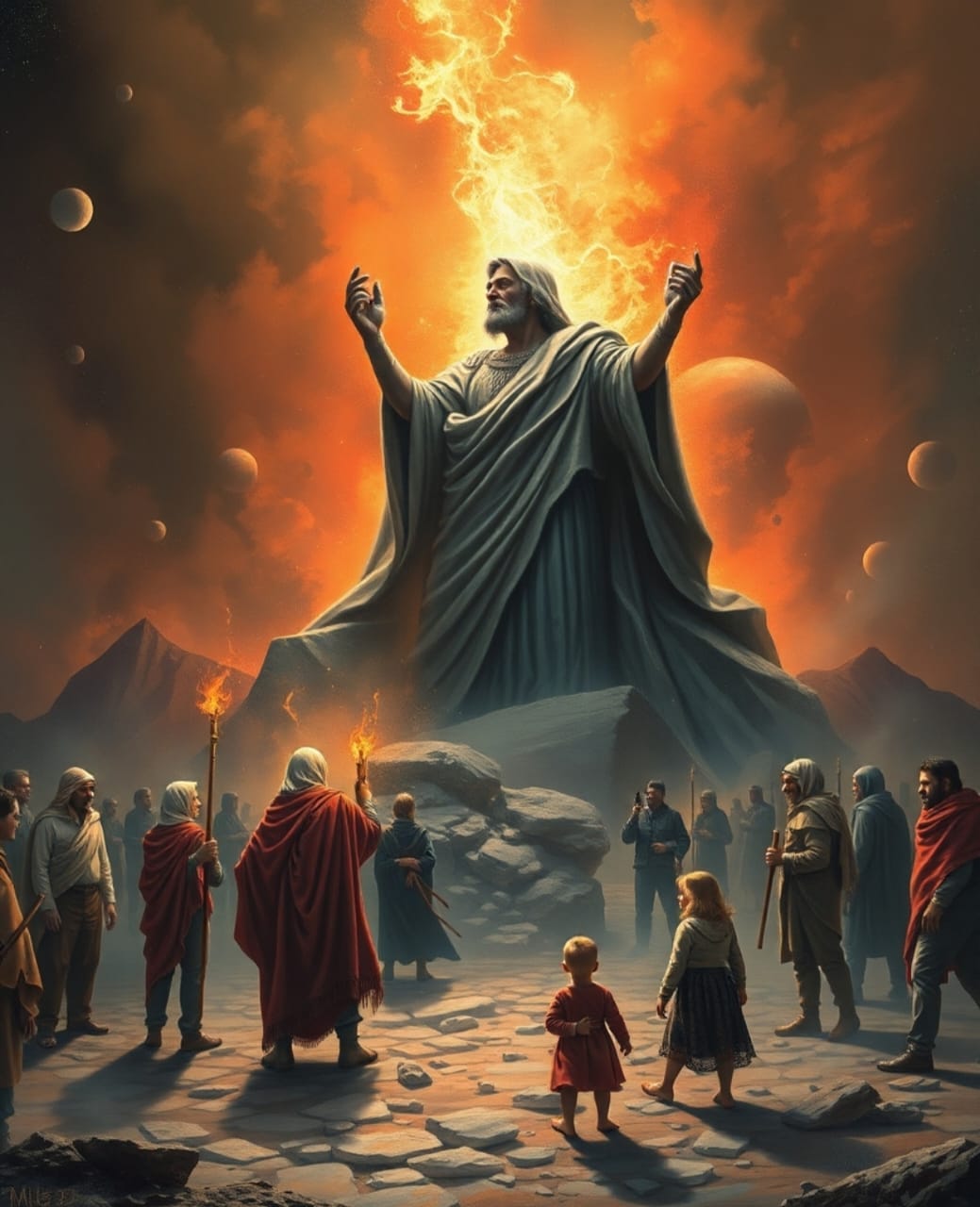Accepting the existence of God opens up deeper philosophical and spiritual questions that have puzzled humanity for millennia. One of the most debated among them is whether any particular religion holds the ultimate truth. While the concept of a superior being has long been the foundation of religious belief, the idea of God transcends organized religion. The undeniable evidence of a higher power is found not in the rules and rituals of religions but in the natural order of life and the miracles unfolding in the universe at this very moment.
Religions, as they exist today, are merely frameworks created by people to prove their devotion to God. Yet, the essence of belief does not rest on rituals or labels but on the acknowledgment of a supreme force that governs all existence. If we can agree on this fundamental truth that there is a higher power, then why should we fear exploring beliefs outside structured doctrines? To me, true religion is not defined by rituals, institutions or practices but by the simple acknowledgment of God. Everything else, the doctrines and practices, is merely a wall built by humanity, a wall that has created division rather than unity.
History shows us that many of the systems we rely upon today, including laws, moral codes and social structures, were crafted by human beings. The foundation of law, for example, was built upon the recognition that human beings are unequal in strength, influence and resources. To create order and fairness, rules had to be established. But to add authority to these rules and make them universally accepted, people claimed that they originated from divine command. In this sense, religion became less of a spiritual connection to the divine and more of a mechanism for societal order. It became a guidebook to promote harmony and cooperation, offering clear paths for navigating the complexities of human relationships.
However, as much as religion was used to protect the vulnerable and create moral order, it also began to impose limitations. Organized religion often restricted personal freedom, dictating not just how people should act but also what they should wear, eat and believe. Belonging to a particular faith became more about identity than connection to God. The rules and rituals became boundaries that defined communities, often fostering division instead of unity. Each religion developed its own doctrines, creating distinctions that separated people rather than bringing them together under the shared belief in a higher power.
Religion can be compared to a lighthouse guiding ships safely through turbulent seas. Those who rely on its light can avoid dangers and reach their destination smoothly. Yet, some sailors who understand the sea and trust their instincts can navigate without the lighthouse and still reach the harbor safely. Life operates similarly, whether one chooses to follow a religion or not, the ultimate journey depends on individual choices, values and personal understanding of good and evil. Both paths can lead to fulfillment and purpose. The key is to respect both approaches without imposing one’s views on others.
Religious beliefs, therefore, are ideas born out of necessity. In ancient times, when knowledge was limited and fear of the unknown was great, religion served as a framework to explain the mysteries of life. It gave people hope, direction and moral order. But in today’s literate and informed world, where most individuals can distinguish right from wrong, we no longer need religion to play the same role it once did. Instead, morality can come from empathy, logic and shared human values rather than rigid doctrines.
That said, faith can still provide purpose and comfort for those who choose to embrace it. It becomes problematic only when it turns into a tool for control, where individuals are forced to follow practices that do not align with their personal beliefs. At that point, religion transforms from a source of guidance to a form of slavery. True faith should empower individuals rather than shackle them. It should inspire them to be better, not force conformity out of fear.
While organized religion may have originated as a means to protect the vulnerable and enforce morality, humanity must evolve beyond seeing it as the only source of goodness. In fact, the responsibility to uphold goodness lies within each of us, regardless of religious affiliation. Goodness must always outweigh evil, and this universal principle transcends religious barriers. It is less about following a divine command and more about fulfilling a moral duty as human beings sharing the same planet.
Ultimately, religion is not inherently bad, nor is it inherently good. It is simply a human creation, an attempt to connect with something greater than ourselves. For some, it provides structure and meaning. For others, it serves as a reminder of the limitations imposed by society. Whether one chooses to follow a religion or forge a personal path to spirituality, what truly matters is the pursuit of truth, kindness and understanding.
The existence of a higher power does not require validation through rituals or institutions. It requires acknowledgment, respect and an inner commitment to live with integrity. True religion should inspire unity rather than division, freedom rather than control and growth rather than restriction. In the end, the true measure of belief is not found in the walls we build around it but in the bridges we create to connect with one another and with the divine.
